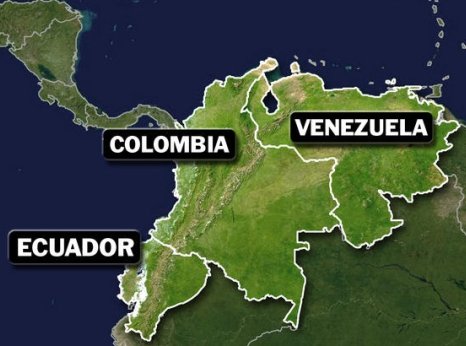Colombia: Protect Defenders From Armed Groups

The Magdalena Medio is an extensive valley between the Colombian mountain ranges crossed by Colombia's main river, the Magdalena River. Petroleum is one of the major sources of economic activity in the region, where the country's largest refinery operates in the city of Barrancabermeja, Santander, at the heart of the Magdalena Medio. The area also engages in agro-industry, mining, livestock, among other economic activities. Due to its location and the abundance of valuable resources like oil and water, the region is considered strategic and has been the subject of continuous disputes between the State and armed groups present in the country. The Magdalena Medio has also been a stage for sustained processes of popular mobilization and human rights advocacy for decades. The combination of unions, feminist, popular movements, and human rights defence has created particularly strong scenarios of assertion and resistance. This, coupled with the dispute for territorial, political, and economic control of the region by interest groups and armed factions, has fostered a breeding ground for violence against human rights defenders that has persisted since at least the 1980s. In 2023, alarming figures of violence against the civilian population, especially homicides, were recorded in the Magdalena Medio. This trend continues in 2024. All of this unfolds in a context of fight between at least four armed groups present in the region, including the Ejército Gaitanista de Colombia (EGC), also known as AGC or Clan del Golfo, currently the biggest armed group of the country and with the wider regional control.
The Federation of Artisanal, Environmentalist, and Tourist Fishers of the Department of Santander (FEDEPESAN) carries out its work in the San Silvestre lake, in the vicinity of the city of Barrancabermeja. FEDEPESAN has reported water pollution by regional companies and the presence of criminal organisations engaged in drug and human trafficking. In this context, the president of FEDEPESAN, Yuly Velázquez, has experienced numerous forms of violence documented by Amnesty International, including a threat in November 2020, bullet impacts on her home in January 2021, intimidations during protest activities in August 2021, a firearm attack in May 2022, and another in July 2022 (resulting in an injury to a security guard of her protection scheme). In February 2021 Amnesty International issued an Urgent Action after serious threats against the vice-President of FEDEPESAN. Amnesty International has documented deficiencies in the functioning of the protection scheme provided by the state through the National Protection Unit – UNP to Yuly Velásquez, due to her high level of risk.
The Regional Corporation for the Defence of Human Rights (CREDHOS), also based in Barrancabermeja, was founded in 1987 and Amnesty International has monitored its situation for several years. In 2000, the Inter-American Commission on Human Rights (IACHR) issued precautionary measures to CREDHOS due to threats from paramilitary groups. In 2016, the Colombian Government's Victims Unit recognized CREDHOS as a subject of collective reparation for having suffered, as a collective, serious human rights violations.
CREDHOS has highlighted recent operations of the Colombian police and of the General Attorney Office against the EGC, for example, the capture of AKA “Bernabé” in September 2024, accused of being responsible of the murder of Filadelfo Anzola, a human rights defender member of CREDHOS. But CREDHOS analysis emphasises the involvement of members and retired members of the military forces in the armed group EGC. For instance, in September 2024 a Police operation against the EGC resulted in the killing of AKA “Zeus”, a retired member of the Army of Colombia, who until August had been accepted to testify before the transitional justice tribunal (the Special Jurisdiction for Peace – JEP) and who had previously been denounced by CREDHOS as a commander of the EGC in the Magdalena Medio region. Also, the capture by the police of the retired colonel of the Army of Colombia José Alejandro Castro Cadavid, who was an active member of the Army until 2022, and is accused by the General Attorney Office of being a commander of the EGC in the south of the Bolivar department, an area that is part of the Magdalena Medio region.
Amnesty International has confirmed that the threats and victimization against CREDHOS’ members as a collective have persisted in recent years, in the context of the presence of armed groups in the territory where they work. Amnesty International has issued Urgent Actions in April 2021, and recently two on 9 and 14 February 2024, highlighting that the protection currently provided by the State is insufficient for the level of collective threat that CREDHOS is experiencing, and asking for a more comprehensive protection. Also, asking the Attorney General to investigate the attacks against CREDHOS’ members. This third urgent action follows public denounces made by CREDHOS in November 2024 and January 2025.